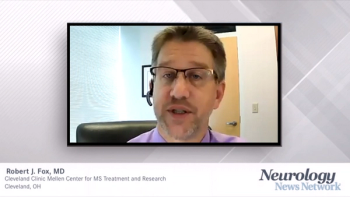
Robert Fox, MD, discussed what’s currently available in terms of cannabis-derived medications that treat symptoms of multiple sclerosis, and realistic possibility of another soon entering the market.

Robert Fox, MD, discussed what’s currently available in terms of cannabis-derived medications that treat symptoms of multiple sclerosis, and realistic possibility of another soon entering the market.

The staff member at the Mellen Center for Multiple Sclerosis discussed reasons why patients may stop treatment, as well as strategies for maintaining communication with the healthcare team in the event of discontinuation. [WATCH TIME: 5 minutes]

An expert provided thoughts on the state of multiple sclerosis research, where the efforts have been directed recently, and areas that need increased focus.

The associate professor of pediatrics and neurology at Rutgers–Robert Wood Johnson Medical School commented on the need to recognize when adolescent patients are ready to learn more about their condition. [WATCH TIME: 5 minutes]

An expert discussed the ways the multiple sclerosis community can create change and ultimately improve education on cannabis use.

The professor of neurology at Beth Israel Deaconess Medical Center discussed the treatment potential of melanin concentrating hormone receptor 1 antagonists for narcolepsy. [WATCH TIME: 3 minutes]

An expert provides the necessary steps needed to bolster accuracy of prescribed disease-modifying therapies for MS and do away with outdated trial-and-error approaches.

Key opinion leaders explain the important attributes to consider when choosing an on-demand therapy.
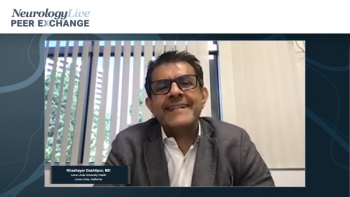
Experts debate the challenges of carbidopa/levodopa, and the relation between levodopa and the gut.
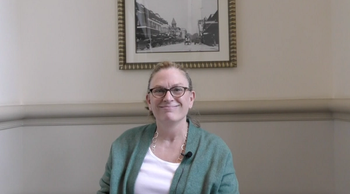
The founder of Food Matters 365, in Greensboro, North Carolina, commented on the benefits of adding a dietitian to the healthcare team for patients with multiple sclerosis. [WATCH TIME: 3 minutes]
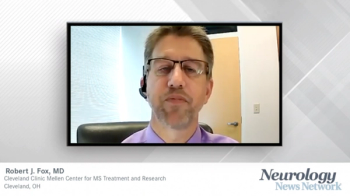
An expert provided context on the need to improve awareness and education on cannabis for patients with multiple sclerosis.

Le Hua, MD, provided insight on the current knowns and unknowns about older patients with multiple sclerosis, how their disease progresses, and the need for additional research.
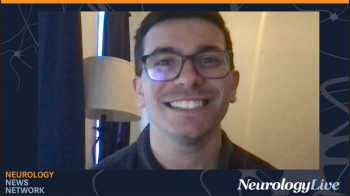
Neurology News Network for the week ending October 30, 2021.

The associate professor of pediatrics and neurology at Rutgers–Robert Wood Johnson Medical School discussed findings from a qualitative study that aimed at understanding priorities and concerns within this patient population during a transitional period.

The registered dietitian at Food Matters 365 in Greensboro, North Carolina, discussed the role nutrition can play in treating comorbidities, sharing her thoughts on popular elimination diets. [WATCH TIME: 2 minutes]
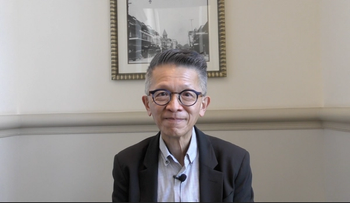
With the CMSC 2021 annual meeting having wrapped up, the director of the Multiple Sclerosis/MRI Research Group at the University of British Columbia offered his perspective on this year’s conference. [WATCH TIME: 1 minute]

An expert provided context on a subanalysis of the EXPAND study that evaluated the effect of baseline age on the efficacy and safety of siponimod (Mayzent; Novartis) in secondary progressive multiple sclerosis.

The director of the Multiple Sclerosis/MRI Research Group at the University of British Columbia spoke to some of the newer biomarkers and measures being assessed in the clinical management of multiple sclerosis. [WATCH TIME: 3 minutes]
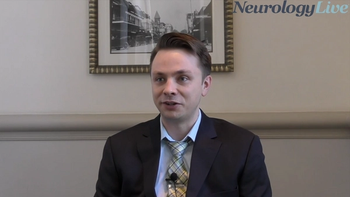
The post-doctoral scholar at the University of Iowa outlined his presentation at CMSC 2021 which focused on the use of elimination diets to improve symptoms of MS. [WATCH TIME: 2 minutes]

The director of the Multiple Sclerosis/MRI Research Group at the University of British Columbia spoke to the portable Standardized MRI Protocol card that is being distributed in an effort to better inform the community to follow the newly published guidelines. [WATCH TIME: 2 minutes]
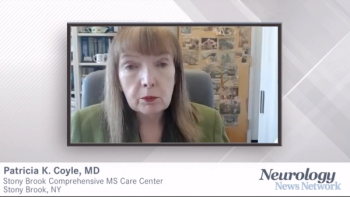
An expert discusses takeaways about the anti-CD20 monoclonal antibody class of disease-modifying therapies for patients with relapsing multiple sclerosis through the lens of ofatumumab (Kesimpta; Novartis).
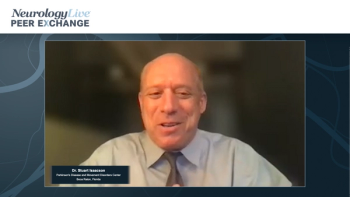
Panelists describe the motor and non-motor symptoms of Parkinson’s disease, linking symptoms to OFF episodes, and how to educate patients.
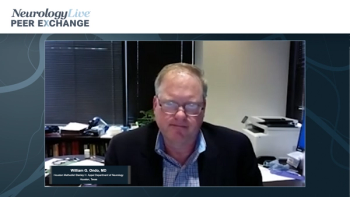
A discussion on how patients are evaluated for OFF episodes, by expert neurologists.

An expert discusses real-world data for ofatumumab (Kesimpta; Novartis), the first self-administered anti-CD20 monoclonal antibody, in patients with relapsing multiple sclerosis.

Following the approval of 3 treatments for the disease, the clinical research director of the UCSF Multiple Sclerosis Center commented on the implications for the clinical development pipeline. [WATCH TIME: 4 minutes]

Neurology News Network for the week ending October 23, 2021. [WATCH TIME: 3 minutes]

Discussing a 6-week, virtual program conducted over Zoom, the founder of First Coast Integrative Medicine, spoke on the use of telehealth and future research efforts for integrative medicine in MS. [WATCH TIME: 3 minutes]

The professor of neurology at the NYU Grossman School of Medicine discussed his findings presented at ECTRIMS 2021, which did not support the hypothesis of a wearing off effect with ocrelizumab (Ocrevus; Genentech). [WATCH TIME: 4 minutes]
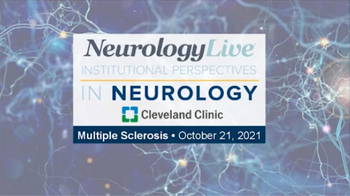
Chaired by Devon Conway, MD, the presentations also feature Cleveland Clinic experts Kedar Mahajan, MD, PhD; Marisa McGinley, DO; and Amy Kunchok, MD. [WATCH TIME: 1 hour, 33 minutes]

The duo from MedStar Georgetown University Hospital detailed the need for education on Parkinson disease and movement disorder therapies, and the CME activities they’ve developed with the PMD Alliance to address those needs. [WATCH TIME: 5 minutes]